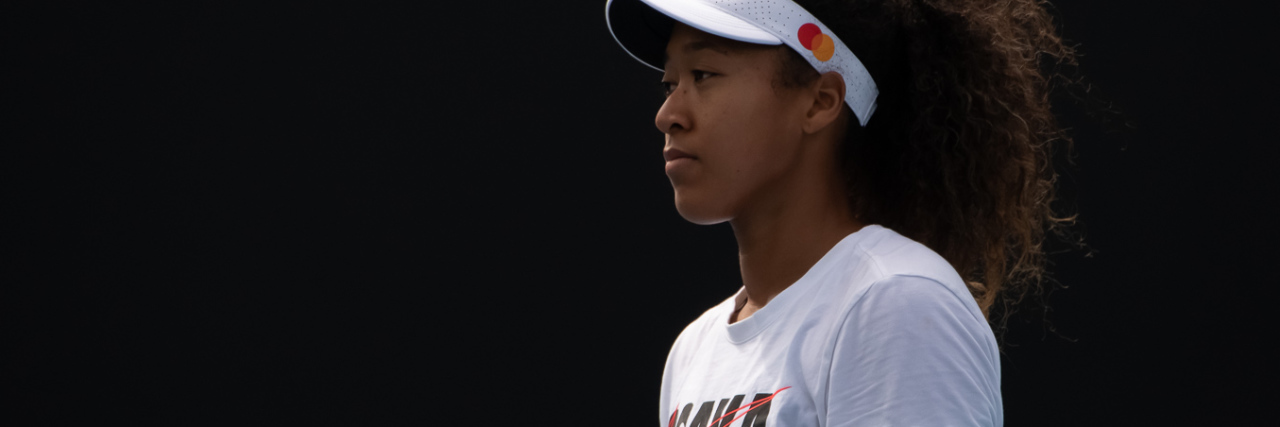Why Billie Jean King Had No Business Telling Naomi Osaka How to Feel About Her Mental Health
Last week, professional tennis player Naomi Osaka made a statement on Twitter that she would not be doing any interviews with the media after her matches at the French Open. She cited harassment by the press and wanting to protect her mental health. In subsequent statements, Osaka made it clear that the media is making it difficult to manage her depression and are unnecessarily asking questions that are triggering for her and are impacting her mental health. She set a boundary, and others seem to have an opinion about it.
One of those opinions is from Billie Jean King — another white woman commenting where she should not. A former World No. 1 professional tennis player and 39-time Grand Slam winner, Billie Jean King commented on Twitter that she thought players “have a responsibility to make ourselves available to the media.”
My thoughts on Naomi Osaka’s decision not to speak with the press at Roland-Garros. pic.twitter.com/BzvHDU3DQY
— Billie Jean King (@BillieJeanKing) May 30, 2021
Osaka is a Japanese/Haitian woman who has skyrocketed to tennis fame. She has competed against the world’s best and has won. She has earned every right to make it clear what she needs for her mental health.
King could have kept quiet or spoke in solidarity with Osaka, but she did not. She instead used her privilege as a white woman and made it clear that Osaka should push past her own instincts for the sake of the game. King commented, “The media still play an important role in telling our story. There is no question that the media needs to respect certain boundaries. But at the end of the day, it is important that we respect each other, and we are in this together.”
There is no place for King to push her agenda at the expense of Osaka.
As a Black woman, I am often confronted by white women who think that I should be grateful for what I have and should not complain. When I was conveying some of my struggles as a Black woman to a white grad school colleague, she stated that I could not claim I struggled like other Black people because I had privilege and was educated. Once again, silenced.
White women give pushback when they feel challenged, when they cannot relate a Black woman’s story to their own. King’s message to Osaka was loud and clear: how you feel does not matter, you have to suck it up and do what is best for the sport at all costs.
— NaomiOsaka大坂なおみ (@naomiosaka) May 26, 2021
King experienced a lot of discrimination as a lesbian player. She overcame a lot of harassment and ridicule to become a champion despite her obstacles. The reality of this is King made her own choices. She decided to play tennis, to engage with the media and the associations. This was all in her purview to stop or continue.
Osaka is saying “enough is enough” and drawing a boundary for her mental health. She is saying to the world that just because she is famous does not mean she owes you all of her. She can opt to take care of herself and give parameters to those who engage with her. This relationship with the press does not have to be a free-for-all.
She is setting an important example for all of us who struggle with health issues — that we can set a boundary before it is too late. That we do not have to give it all until we are so spent, until we are not able to function at all.
Osaka inevitably withdrew from the tournament due to depression and social anxiety and will be taking a break from play. In a statement posted to her social media, she said dropping out from the high-profile event was “the best thing for the tournament, the other players and my well-being.”
Osaka owes the media nothing. Osaka owes King nothing.
Osaka is clearly her own woman and knows what she needs to practice self-care. I am in awe of her bravery, her willingness to go public with her struggles and to take on the tennis administrators.
I hope others will come out in support of Osaka and demand changes occur so all of sports is better for it. Naomi Osaka is a great role model and is “Mighty Strong!”
Rob Keating from Canberra, Australia, Australia, CC BY 2.0, via Wikimedia Commons

